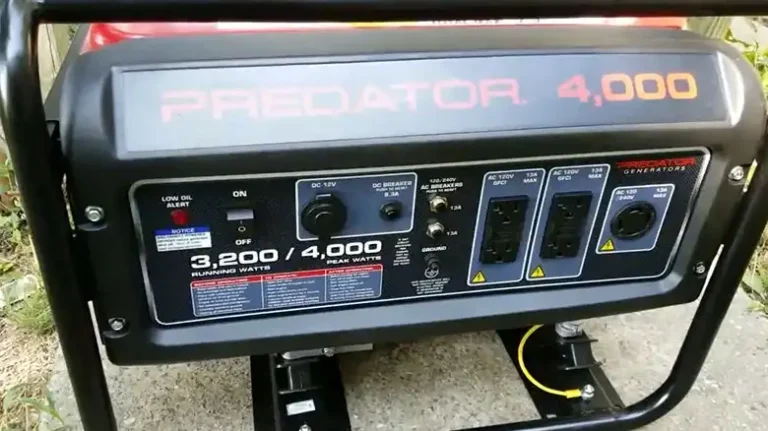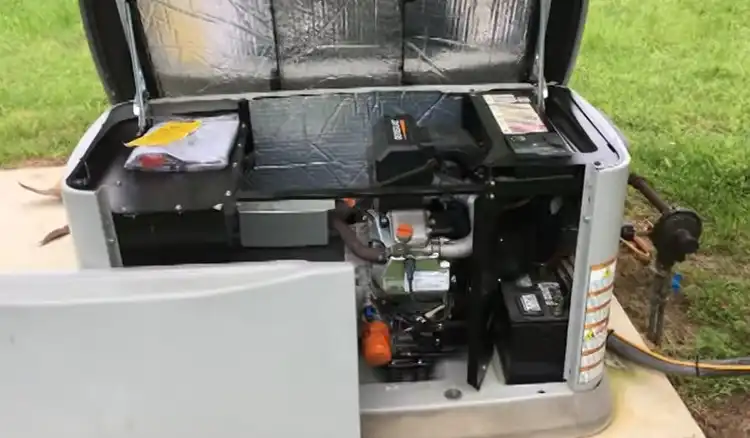[Explained] Can a Welder Generator Power a House?
Driven by diesel engines, welding generators are used to power the welding machine when there is no electric power supply. It enables you to weld without having to rely on the main’s electricity. It has become an essential part of the welding industry.
So, if you own one for your welding purposes and were wondering can a welder generator power a house, you’ve come to the right place. The answer is yes, aside from welding machines, welder generators are very much able to power your house.

The Advantage of Using a Welder Generator to Power a House
The biggest advantage a welding generator brings is that it can act as a stand-alone generator as well. It is in fact, a generator, albeit smaller in size than household generators.
The biggest advantage of doing so is cost-effectiveness, of course. Not having to buy a separate generator is obviously going to save you some money.
It gives you the freedom of not having to hassle with two separate generators and maintaining them. It’s also more practical for smaller apartments where space is scarce.
Difference Between a Regular Generator and a Welder Generator
Aside from size, not a lot of things are different between these two. Welder generators use mostly diesel engines, while home generators normally use petrol-powered ones.
The type of current produced by these two can also vary, although not always. Regular generators produce AC current while welder generators can produce both AC and DC current, depending on the model.
Also, welder generators are usually louder since they mostly use diesel, and diesel engines are louder. So if noise is an issue for you or your neighborhood, you should look elsewhere.
Power Requirements and Runtime of Welder Generator
When running regular household electronics like lights, furnaces, TVs, and air conditioning units, it typically requires anywhere from 5000 to 8000 watts. Factoring in that load, a regular welding generator with a 10 to 12-gallon fuel tank can give you a runtime of about 10 to 12 hours. Which is sufficient for a backup generator.
Depending on your model, you can get wattage as low as 4500 to all the way up to 12000 watts, from a welder generator.
Should You Choose Welder Generator Over a Regular Generator?
For a comparable price, a welder generator can give you equal if not better performance than a stand-alone regular generator. They come with a welder unit as well, which gives you the flexibility to weld and repair things on your own, should you require it in the future.
Welder generators are more rugged in nature and are built to last. So they offer you better future-proofing.
Also, welder generators are more fuel efficient, as they are designed to give long hours of power supply for a full tank of gas.
Frequently Asked Questions And Answers
Can I use a welding machine as a power supply?
Yes, you can. But only if it is a generator-powered stand-alone welder and not a welding machine that requires an electrical outlet to work.
How big of a generator do I need to run a 240V welder?
To run a 240v welder, your generator should produce electricity upwards of 8000 watts.
Can I power my house with an inverter generator?
Yes, you can. Powering houses using inverter generators is no different from regular generators.
What size generator do you need for a house?
Generally, a 7500-watt generator is a good size for household needs.
How to use a welder generator to power my house?
Plug in your electronic appliances and any other tools you want to use directly to the welder generator’s power outlet. Remember to never use more than 90 percent of your wattage limit.
Final Thoughts
A welder generator is a great tool to have. Aside from your welding needs, you can always use it as a backup, especially during natural disasters. It is hundred percent safe to use for powering all household electronic appliances and is no more costly than a regular generator. Thanks for reading.





![[100% Working] Generac Generator Clicks But Won’t Start](https://generatorwheel.com/wp-content/uploads/2023/03/Generac-Generator-Clicks-but-Wont-Start-768x431.webp)